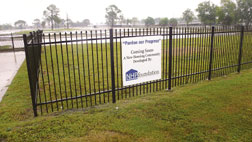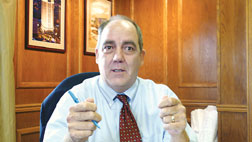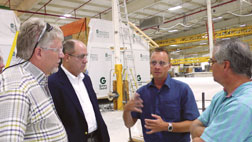Bill Petty likes to fix things, whether it’s the 1977 Volkswagen he recently bought or a piece of his adopted city, New Orleans. “I like to restore things to something better,” he says. Now on the verge of delivering a $30-million, 209-unit mixed-income housing project that will be the city’s first all-modular development, Petty, one of seven owners of Walton Construction, Kansas City, Mo., and president of the local division, is in his element. “I’m a contractor, so what better place to be? We think this is the prime market for building, and modular is the way to go,” he says.
When Hurricane Katrina destroyed more than 200,000 residences in the area, the market seemed ripe for modular construction. The safe, more-sustainable process seemed a natural choice for an area that hadn’t produced much housing for some time, had lost most of its labor force and needed housing—fast.
Two years later the modular manufacturing plants still have not materialized and neither have the sorely needed homes. Although a few modular homes are popping up here and there, big modular projects are not and most of the landscape remains a study in dilapidated, damaged structures interspersed with concrete foundations poking through the weeds.
 Angelle Bergeron A 209-unit modular rebirth is planned on site reduced to pads and foundations. |
 Angelle Bergeron Petty |
By contrast, one 12-acre site in eastern New Orleans is studded with foundations and surrounded by a black wrought-iron fence that gives it an almost manicured look. Ranks of broad concrete pads mark the site of the former 284-unit Walnut Square apartments which were flooded, gutted and finally reduced by fire in 2006. It is there that Petty is preparing to make a strong statement about recovery and modular’s role in making it happen.
“I want to do something that has a big impact, where people will drive by New Orleans East, see nothing and, overnight, boom! That’s what will get some energy going,” Petty says. “That will get other developers excited about building—speed and quality.”
Walton is poised for notice to proceed on a 420-day contract. “We’ve got this construction timed to 14 months, turnkey,” Petty says. “If all the stars are aligned, this will happen in 12 months.”
The clock is ticking. The owner, National Housing Properties Foundation, has a national portfolio of 26 properties and more than 5,100 apartments. It is seeking post-Katrina “GO Zone” tax incentives for Walnut Square. To qualify, the entire job must be finished before the end of 2008. For Petty, the project has become a personal mission. “There’s too many can’t-be-dones these days,” he says. “A lot of eyes are on this project.” Supporters include the Bush/Clinton fund, Ford Foundation, Capital One, Hudson Homes and Bank of America. “There are a lot of projects like this on the board in the city, but this is the only one advancing,” he says.
 Tom Sawyer Walnut Square's 284 units were flooded by Katrina, gutted and finally rubbed out by fire. |
Petty is counting on the speed of modular construction to meet the deadline, but he is not counting on speed bringing better profit. Walton is limited to a 6% margin on Walnut Square, compared to the 8% to 10% it earns on the military, health-care and high-rise projects that are its mainstay. “I’m in it to bring people back,” Petty says, although he notes speedy delivery will lower insurance costs because he will turn the project over to the owners sooner, reducing his builders’ risk exposure.
 Related Links:
Related Links: September 5, 2007
Procurement
Stratford Homes Limited Partnership is contracted to supply the 500 modules for the apartments from its Stratford, Wis., and Chariton, Iowa, plants. Petty says he went with Stratford, even though it is 1,200 miles away, because of the company’s superior products, transportation system and experience with multifamily projects. Petty says a lot of fabricators manufacture single-family homes, but few do modular apartments. Also, Stratford’s homes are wood frame, which is a better fit with the existing foundations.
 Angelle Bergeron Petty, second from left, talks modular construction with Stratford Homes' officials in factory. |

Post a comment to this article
Report Abusive Comment